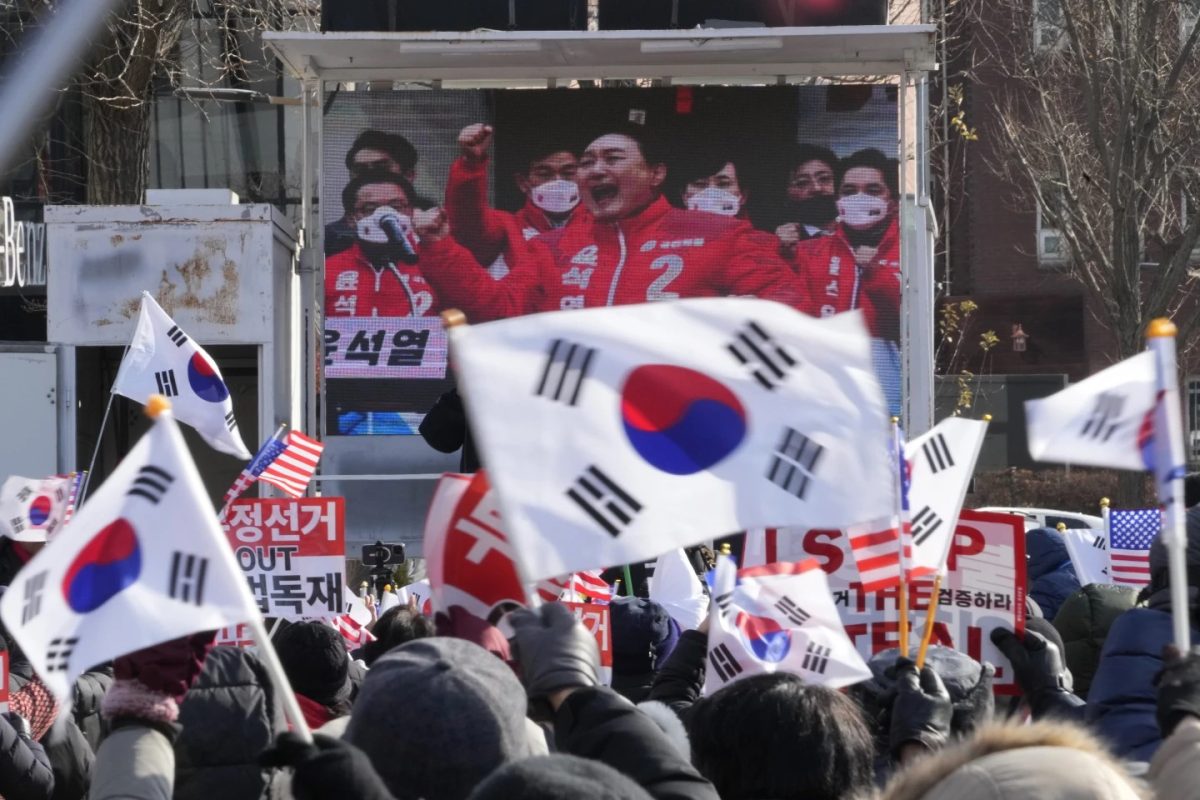On December 3, 2024, the President of South Korea, Yoon Suk Yeol, declared martial law, citing supposed North Korean infiltration. The pushback was immediate: thousands protested just hours after the declaration, and Congress voted to end martial law in an emergency session. The political fallout is still ongoing including looming criminal charges.
In his martial law address, Yoon accused the opposition party of allowing foreign spies in the country saying he will eliminate the “anti-state” forces. In a later speech, he accused the opposition party of “legislative dictatorship,” preventing him from dealing with these problems and North Korean infiltration.
The martial law blocked all political activity and protests, including congress from holding sessions and voting. Despite this, 150 of 300 congressmen entered the building and all voted to end the martial law. The next day, Yoon backed down and revoked the order.
Martial law has previously been used to solidify control through press censorship and elimination of political dissent in South Korea, the most prominent case being President Park Chung-Hee, who used it multiple times after taking power in 1961.
Even before declaring martial law, Yoon and his wife Kim Keon-hee were facing scrutiny after she accepted a luxury handbag from a pastor. The opposition party called for corruption investigations against Yoon and Kim for the accepting of what they call a “bribe” and accusations of stock manipulation. Yoon apologized for his wife’s “unwise choices” but denied any wrongdoing.
President Yoon was already deeply unpopular and stuck in legislative deadlock, with the opposition party controlling 192 of the 300 seats. Scandals and controversial remarks contributed to his low popularity, and he was projected to lose the next election.
Criminal prosecution looms over Yoon: Congress has already voted to impeach him, and the Supreme Court approved both his arrest and impeachment in December.
On January 15, 2025, after a failed attempt to arrest him just days before, 1,100 police were sent to his home. Due to the police outnumbering his security force five to one, they successfully arrested him without casualties.
Though there are many parallels between now and South Korean history, Mr. Gouge, an IB Theory of Knowledge teacher at Skyline who taught in Korea for four years, says this attempt “failed because Korea has a strong memory of dictatorship” and “a pretty strong short-term history of political protest.”
Although the crisis seems to be coming to a close, Gouge suspects similar crises will occur until South Korea’s democracy has had time to mature.
For more information:
Ruthless Politics of South Korea Is Rooted in Cold-War History
A Coup, Almost, in South Korea
What to know about South Korea’s martial law and the impeachment vote threatening its president









